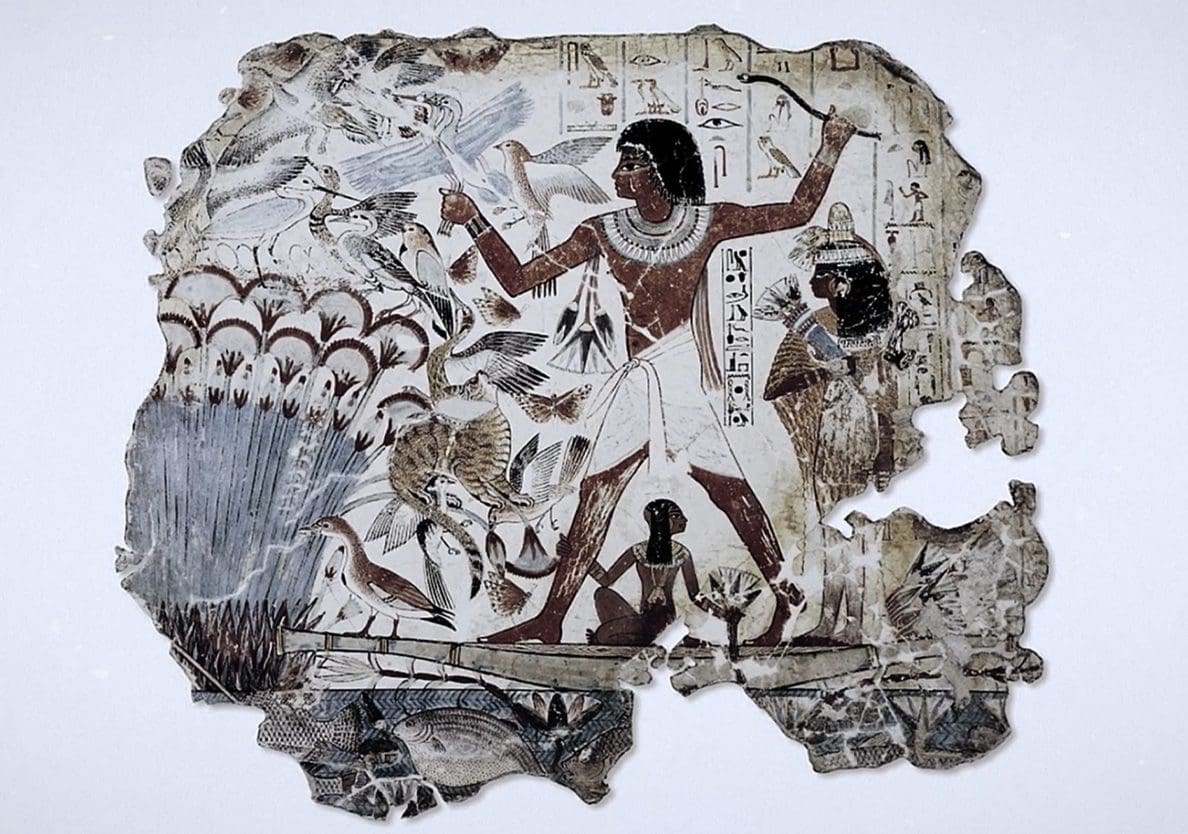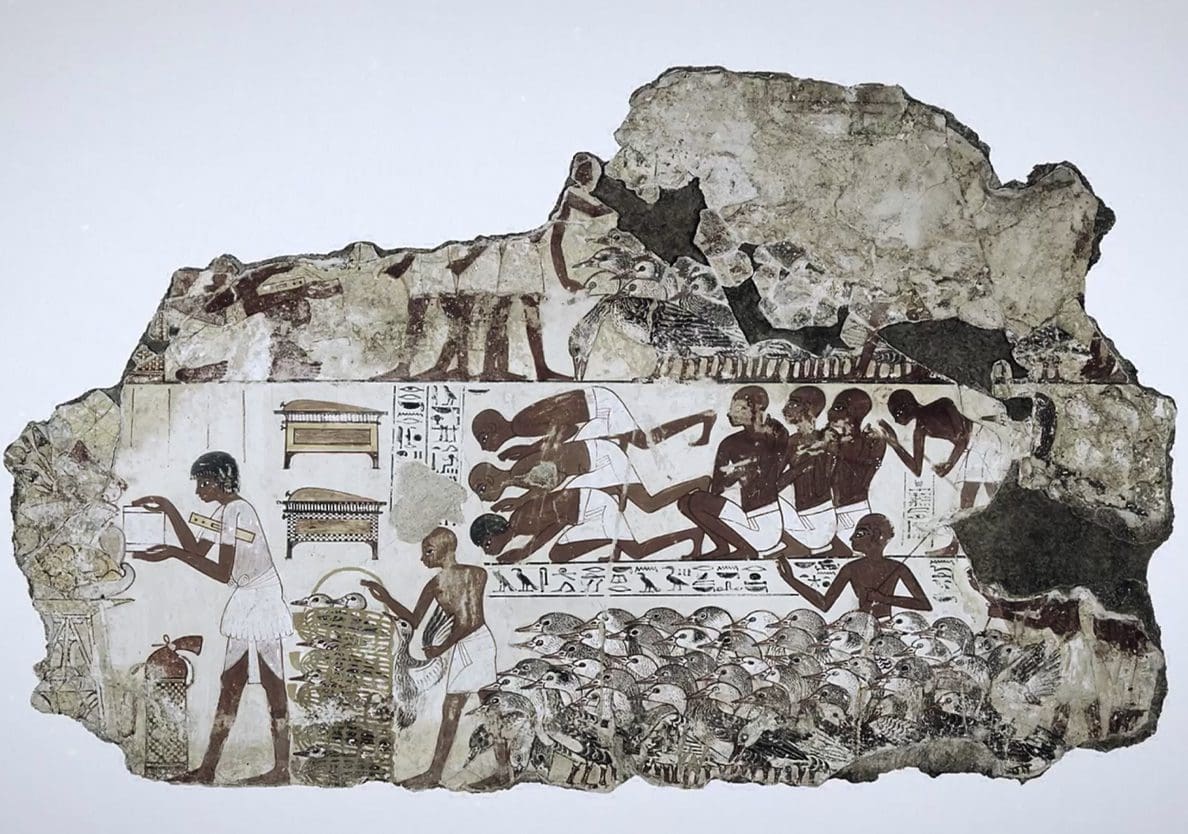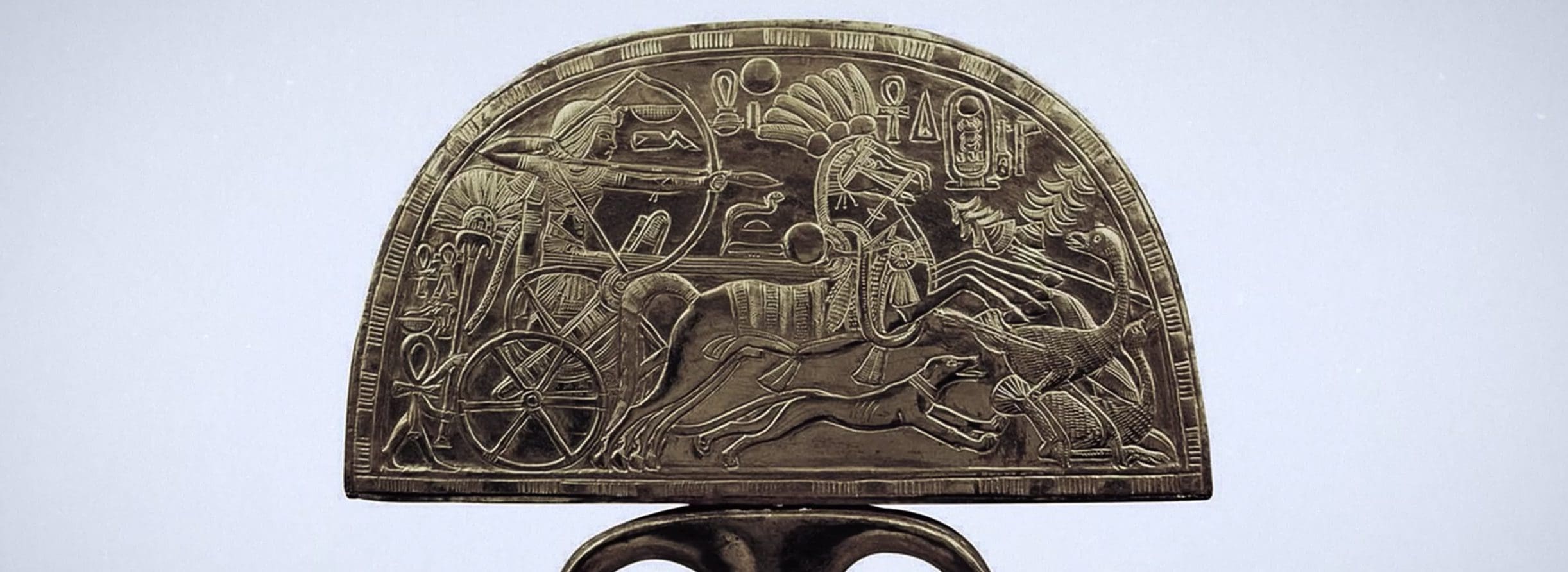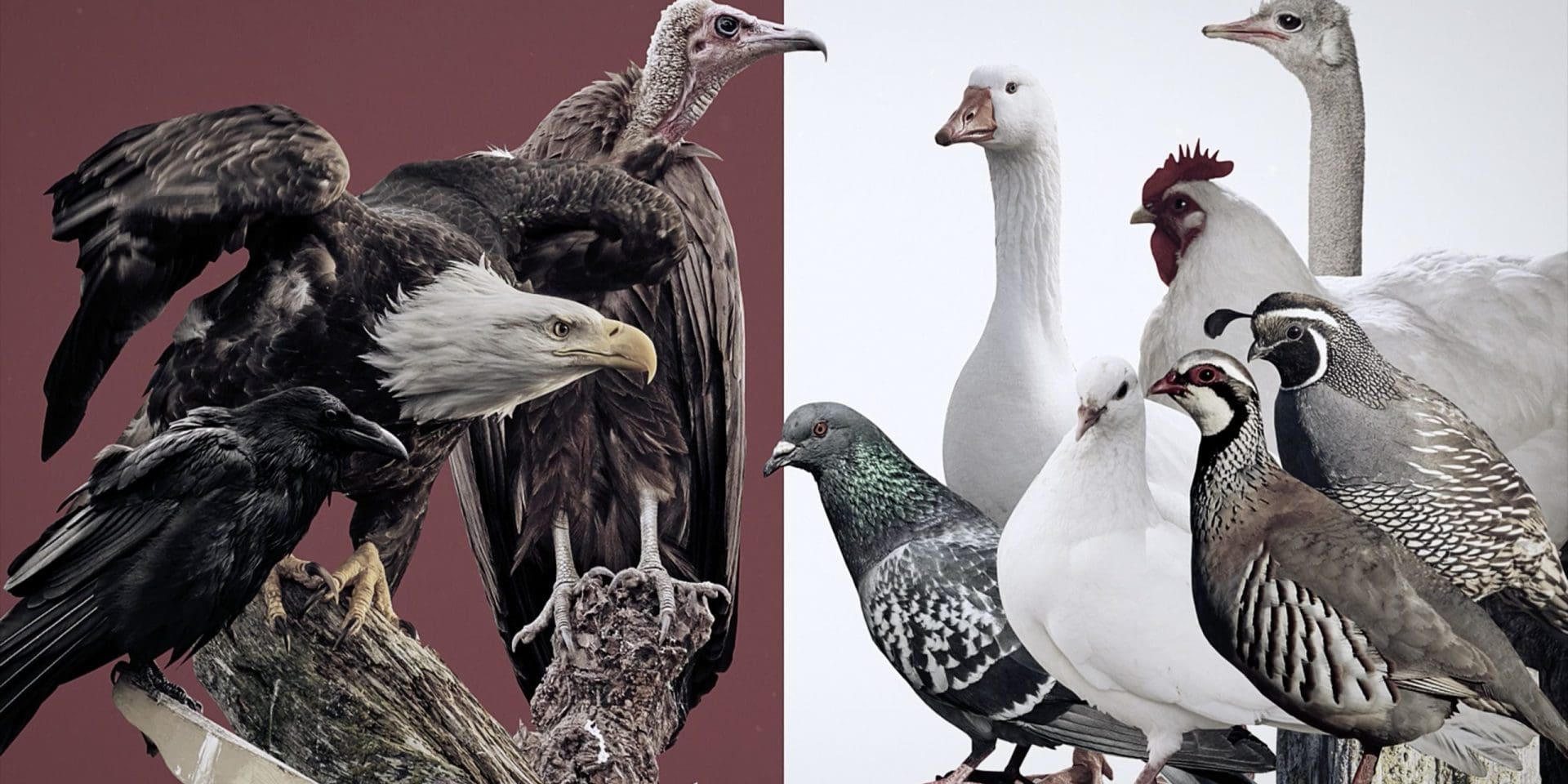Birds were both a source of food and sacrifice in ancient Israel. Leviticus 11 and Deuteronomy 13 preserve for us the list of fowl that were ritually impure and, therefore, not to be eaten or offered to God as sacrifice by the Israelites. As a general rule, birds of prey like eagles and falcons, and carrion birds like vultures and ravens were ritually unclean. On the other hand, birds like pigeons, doves, and quail were acceptable as inexpensive sacrificial animals, and fine to eat. Based on archaeological work and comparison with other contemporary cultures, we can be quite confident that ancient Israelites, where available, also ate partridges, geese, duck, chicken, and ostrich, as well as various bird eggs (Isa. 10:14; Deut. 22:6).
Hunting wild birds is spoken of quite often in the Bible (1 Sam. 26; Ps. 124:7; Prov. 6:5; 7:23; Lam. 3:52), likely due to the fact that it was a very common practice and that it provided useful imagery to the authors and poets of the Bible. Amos 3:5 references the practice of trapping birds with a net filled with bait and laid on the ground, and Hosea 7 talks specifically about the use of nets in bird hunting.


These descriptions are given visuals thanks to Egyptian tomb reliefs and paintings showing various forms and stages in fowling. Nets and traps, the use of blinds to shield hunters, and the aftermath of birds in cages and baskets are all depicted. Famously, a golden fan found in the tomb of Pharaoh Tutankhamen is decorated with an ostrich hunting scene. The pharaoh on his chariot is shown hunting ostrich with his bow and arrows, and with the help of a dog.
Similar methods of hunting are spoken of throughout ancient Mesopotamia, though not depicted quite as vividly as in the remains from ancient Egypt.
People also kept and domesticated several kinds of birds. In Israel, this not only made birds more accessible for meat and eggs, but ensured that birds used in sacrifice to God, like doves, would be unblemished and undamaged by the act of capture. The many columbaria found throughout Israel testifies to the dove’s domestication.

It is also believed that by at least the latter half of the time of the Kings of Israel and Judah, domesticated chickens were regularly kept in the land. The history of chicken domestication is a complicated one, but their presence in Israel is known thanks to chicken bones found at Israelite sites. There is also a signet seal that was found at Tel-Nasbeh that reads “[belonging] to Jaazaniah, servant of the king” above an image of a rooster in a proud fighting stance. It’s possible that this Jaazaniah may be the officer mentioned in 2 Kings 25:23.
Interestingly, the Bible also mentions the importing and keeping of exotic animals by rich king Solomon (1 Kgs. 10:22) which may have included exotic birds. It is also said that fatten birds were served at Solomon’s dining table (1 Kgs. 4:23), meaning specially fed domesticated birds.

Corie Bobechko is a daily co-host, speaker, and writer of Bible Discovery. She also hosts a YouTube channel that shows how history and archaeology prove the Bible. Her heart for seekers and skeptics has led her to seek truth and share it with others. Corie also has a Bachelor of Theology from Canada Christian College.






